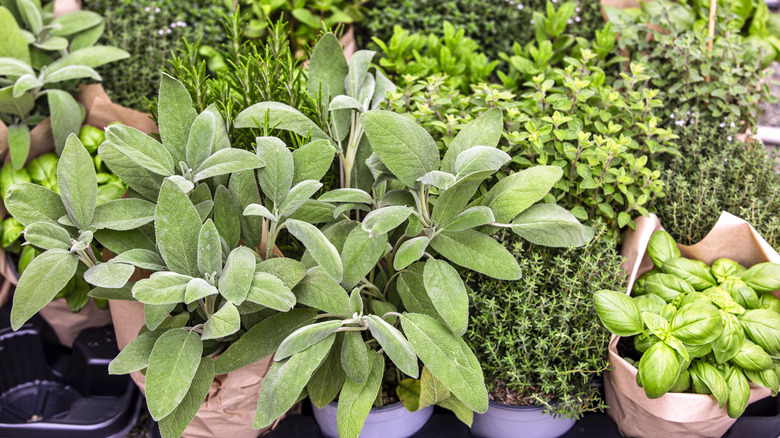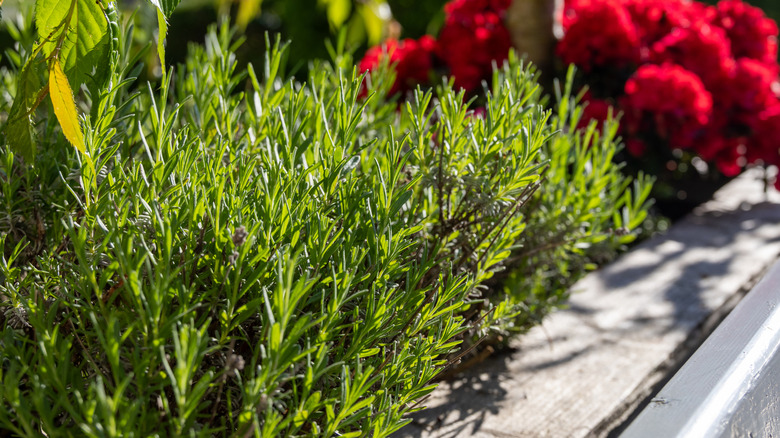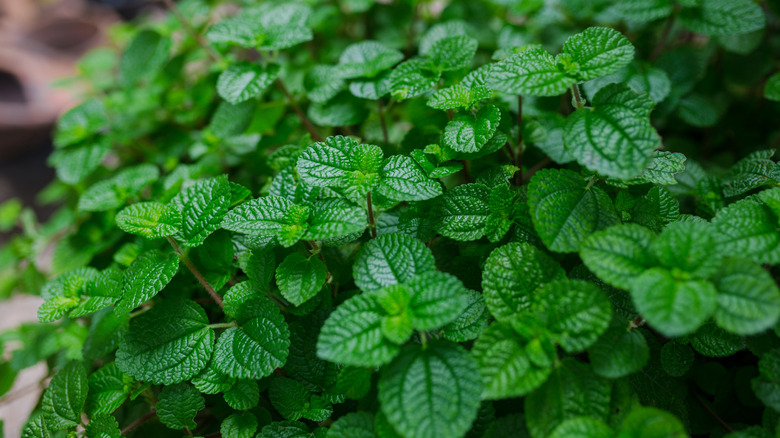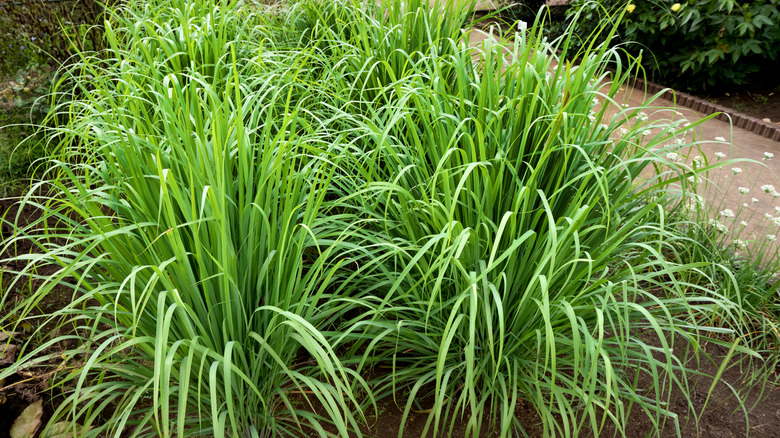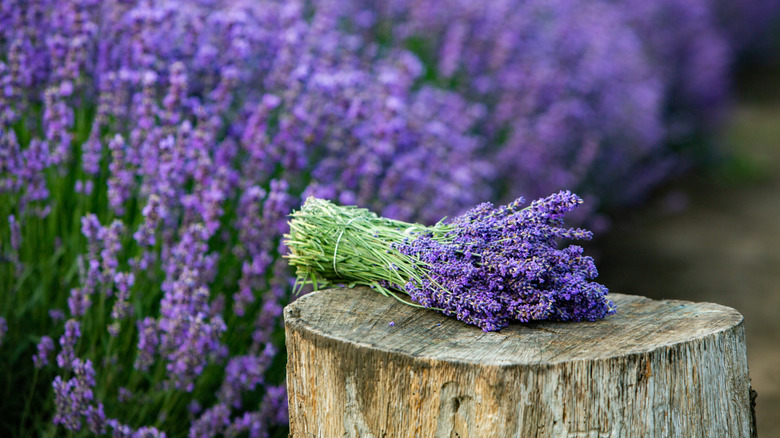Plant These 4 Garden Herbs To Keep Ticks At Bay This Summer
Ticks aren't just something for backcountry hikers to worry about. Species of these parasitic bugs can be found everywhere in the world, and multiple species inhabit the U.S. Ticks prefer to hide in leaf litter and other environments that give them cover and moisture, so they may consider your herb garden an ideal spot. Fortunately, some herbs can make your garden less hospitable to these pests.
Certain strong odors can repel ticks, and lucky for us humans, many of them are smells we tend to enjoy. Lavender, mint, rosemary, and lemongrass are all commonly edible herbs that ticks find repulsive. You can also plant all of them during the summer, though spring may be better for some. Just mind your USDA plant hardiness zones (also known as growing or climate zones) to help determine your ideal planting time. Also, pet owners beware: Except for rosemary, all of these herbs are toxic to cats and dogs.
The best protection against these bugs is quality insect repellant applied to the body. Still, smart planting can layer on further protection by making your garden hostile to ticks before they can establish themselves.
Rosemary
Rosemary is perhaps the most versatile herb on this list. Its delicious aroma pairs well with countless dishes, and it also keeps ticks away. Rosemary oils also help repel another bloodsucking, disease-spreading pest: mosquitos. Best of all, pet owners can relax, as rosemary is nontoxic to both cats and dogs.
Rosemary is native to the Mediterranean and grows best in similar weather, either from trimmings or a purchased plant. If you start with seeds, you likely won't see your first harvest for several growing seasons. Spring is the best time to plant, but summer also works in milder weather. In growing zones 8 and below (aka warmer climates), this plant is evergreen.
Rosemary is a surprisingly useful herb that pairs well with many vegetables, virtually any protein, and even certain pastries and desserts. One highly rated plate where it shines is in this pan-seared rosemary lamb shoulder chop — a simple yet show-stealing dinner.
Mint
Even people can sometimes find the smell of mint to be a bit much, so it's little wonder that ticks are also overwhelmed by this herb. But unlike some other entries on this list, mint can also overwhelm your garden itself. For best results, consider keeping mint plants in their own pots outside to limit their spread.
Even when contained, these plants' minty freshness should help keep ticks at bay. Like rosemary, mint is best planted in the spring, but it's a hardy herb that can also be planted in the summer. Mint thrives best in growing zones 3 to 11, meaning it can grow extensively in most climates.
Mint pairs well with desserts, especially anything with strong chocolate or strawberry flavors. Mint also meshes well with citrus, like as a garnish for a lemon tart. Mint even pairs well with certain alcohols and is an essential ingredient in the mojito and mint julep, among other cocktails.
Lemongrass
The earthy citrus odor of lemongrass is anathema to ticks. Part of why they find this delicious plant so repulsive is the citronella oil present in its leaves. But despite the controversial reputation of citronella candles (which aren't actually an effective mosquito repellent), an abundance of lemongrass may help deter ticks — and in ideal climates, lemongrass grows aggressively. Try growing it in its own large pot, at least 12 inches in diameter.
Lemongrass is best planted in the spring for a big, leafy summer harvest, but it's an eager-enough grower to plant during the summer, too. In climate zones 10 and 11, lemongrass can even be evergreen. Gardeners in zones 8 and 9 will see their lemongrass die during the winter, but it should return come springtime. Any colder than that, and the plant should be brought inside for the winter.
Lemongrass is a cornerstone ingredient in Southeast Asian cuisine, particularly in Thailand and Vietnam, where it grows well in each country's year-round heat and humidity. Lemongrass is a must-have for this authentic Thai vegetable soup, featuring other ubiquitous Thai ingredients like coconut milk, fish sauce, and galangal.
Lavender
Lavender is such a fragrant herb that it's arguably better known as a scent than an edible plant. With an odor so notable that large lavender fields can be smelled at a distance, it follows that sensitive creatures like ticks can't stand the stuff.
Unfortunately for ticks, this herb grows robustly. It easily plants in the summer and spring, and it should bloom considerably with plenty of water and sunlight — though you may want to shade the plants if the sun gets too intense. There are a few different species of lavender, but most of them grow best in hot, dry climates. Spanish lavender especially loves heat and grows best in climate zones 7 to 9. Most other types of lavender are a bit more hardy and grow well in zones 5 to 9.
Lavender may not have as many uses as rosemary or lemongrass, but it can be a memorable accent in many dishes. For example, you can add lavender to fruit salads for a hint of floral sweetness, or you can use it to give your lemonade a touch of elegance. Just remember that lavender has a strong flavor, so use it sparingly.
